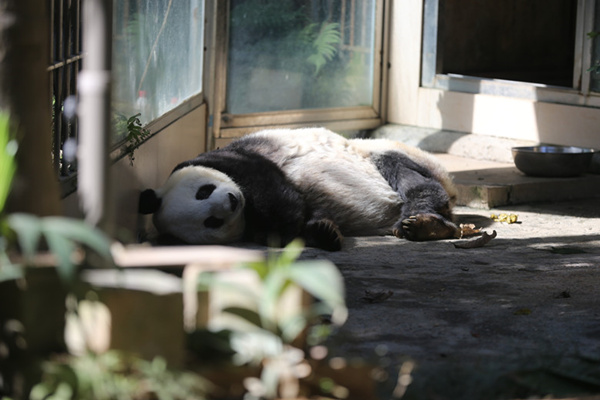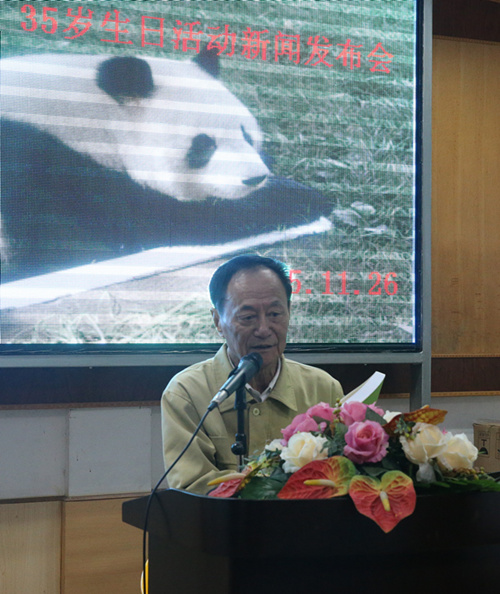

 |
|
Giant panda Basi enjoys the sunshine at Fuzhou Panda World, Fujian province, on Nov 26. [Photo by Hu Meidong/chinadaily.com.cn] |
A series of celebrations will be held in Fuzhou, Fujian province on Nov 28 to celebrate the 35th birthday of female star panda Basi, which was announced at a press conference on Nov 26.
Representatives from government departments, panda research institutes and animal protection organizations, as well as those who have witnessed Basi's significant moments, will gather in Fuzhou for the celebrations.
Basi's 35 years of life are equivalent to a human's over 100 years. She is the oldest living panda in the Chinese mainland.
"Basi's longevity secret is that she keeps doing exercises such as playing basketball and lifting weights, unlike other pandas that sleep immediately after dining. She also keeps a healthy diet," said Chen Yucun, head of the cross-Straits Fuzhou panda research and exchange center.
 |
|
Chen Yucun, head of the cross-Straits Fuzhou panda research and exchange center, speaks on Basi's condition at a press conference in Fuzhou, Fujian province on Nov 26. [Photo by Yang Jie/chinadaily.com.cn] |
The birthday celebrations will be collectively hosted by the China Biodiversity Conservation and Green Development Foundation, the publicity department of Fujian, Fuzhou government, the cross-Straits Fuzhou panda research and exchange center, and Xinhua, in a bid to raise public awareness of protection of pandas and their natural habitats.
The first forum on protection of aging pandas will be held on the same day in Fuzhou as part of the celebrations.
Basi is not only a name of a panda, but also a symbol of culture to promote global harmony and peace. Basi is well-known at home and abroad. In 1987, she was sent to San Diego in the US for a six-month exhibition. In 1990, she was chosen as the prototype for Pan Pan, the mascot of the Beijing Asian Games. The panda star was born in Baoxing county of southwest China's Sichuan Province and moved to Fuzhou at the age of four.